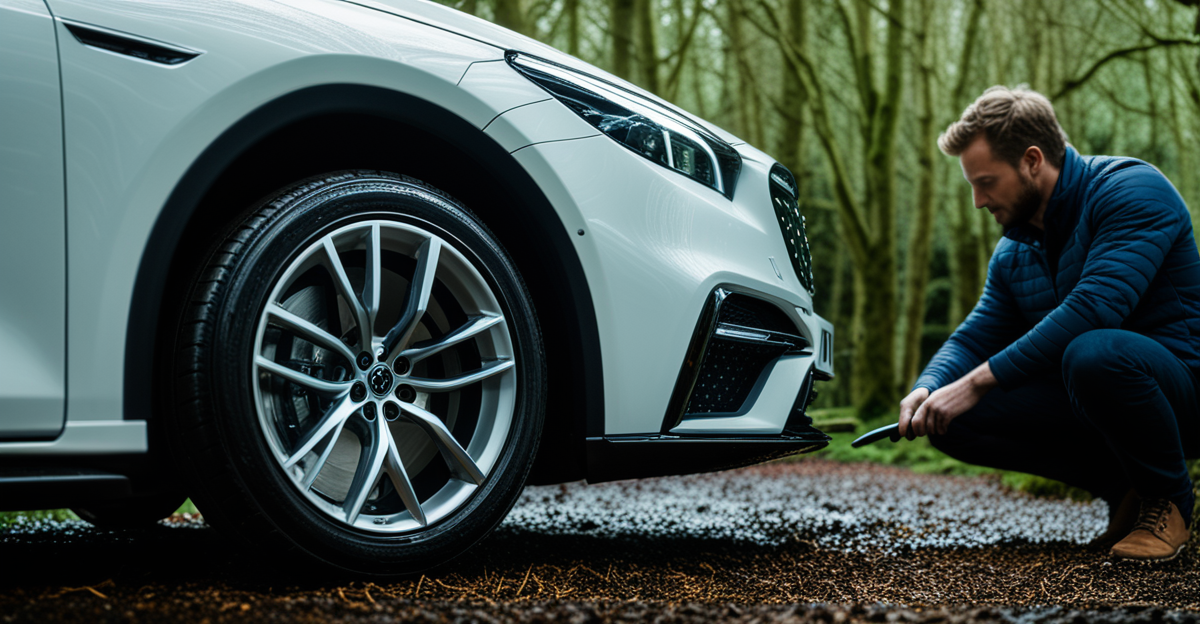Leading Eco-Friendly Innovations in the UK Automotive Industry
The UK automotive sustainability landscape is rapidly evolving, driven by a clear demand for environmentally responsible solutions. Both manufacturers and consumers increasingly prioritize innovative eco-friendly practices, pushing the industry toward more sustainable models. This trend is evident in the growing integration of eco-conscious design principles and technologies within car manufacturing processes.
At the forefront of this movement, the UK has positioned itself as a leader in adopting cutting-edge car manufacturing techniques that reduce carbon footprints and minimize waste. Manufacturers are investing heavily in research and development to create vehicles that not only meet regulatory standards but also exceed consumer expectations for environmental stewardship.
This might interest you : What Challenges Do UK Automotive Manufacturers Face Post-Brexit?
Key elements of this leadership include the development of energy-efficient production lines, the use of renewable energy sources in manufacturing facilities, and the incorporation of lightweight, sustainable materials. These innovations are reshaping the automotive sector, aligning it with global efforts to combat climate change.
The demand for sustainable solutions is becoming a pivotal factor in purchasing decisions, influencing how UK car brands design, produce, and market their vehicles. This shift highlights a growing synergy between advanced technology and green practices, affirming the UK’s role as a hub for sustainable automotive innovation.
Also read : How Can the UK Automotive Industry Drive Sustainability in the Future?
Implementation of Electric and Alternative Fuel Vehicles
The UK automotive sustainability push strongly emphasizes the expansion of electric vehicles (EVs) and alternative fuel options. Major UK car brands are increasing production capacities of EVs, responding to growing consumer demand for sustainable mobility. This is supported by the development of extensive charging infrastructure nationwide, aiming to alleviate range anxiety and facilitate longer journeys.
Frequently asked: How are UK car brands contributing to the rise of electric vehicles?
UK manufacturers invest heavily in EV technologies, integrating batteries with improved energy density and quicker charging capabilities. Brands focus on making EVs more affordable and accessible while maintaining performance standards comparable to traditional combustion engines.
Beyond electric, the industry is also exploring alternative fuels like hydrogen and biofuels. Hydrogen fuel cell vehicles are gaining traction, especially for commercial fleets, due to their fast refueling times and zero tailpipe emissions. Biofuels, derived from sustainable organic sources, are being trialed as drop-in solutions compatible with existing engines, lowering emissions without requiring significant redesigns.
These innovations reflect a comprehensive strategy by UK automotive firms. They extend beyond just manufacturing to promoting infrastructure and technology adoption that supports broader sustainable mobility objectives. This multi-faceted approach positions the UK as a leader in driving the transition from fossil fuel dependence to greener alternatives within the automotive sector.
Sustainable Manufacturing and Materials
Sustainable automotive manufacturing is a cornerstone of the UK automotive sustainability agenda. Leading manufacturers are intensifying efforts to incorporate recycled materials and bio-based components across their production lines. This shift not only reduces reliance on virgin resources but also significantly lowers the environmental footprint of vehicle assembly.
In practice, UK automotive facilities are adopting eco-friendly car parts that utilize materials derived from recycled plastics, aluminum, and natural fibers. These parts match traditional components in durability and performance while supporting circular economy principles. A critical element here is the integration of closed-loop recycling programs within factories. By recovering and reusing waste material from production processes, manufacturers minimize landfill contributions and resource consumption.
Moreover, waste reduction strategies complement these efforts. Factories implement precise inventory and supply chain management to reduce excess material use. They also invest in energy-efficient machinery, further enhancing their sustainability. This comprehensive approach affirms the UK’s reputation for cutting-edge car manufacturing that prioritizes environmental responsibility without compromising quality.
In summary, sustainable manufacturing and material innovation form a vital pillar in the UK’s pursuit of greener automotive solutions, reflecting a commitment shared by both producers and consumers towards a more resilient and eco-conscious automotive future.
Notable UK Automotive Brands Leading Sustainability Efforts
In the realm of UK automotive sustainability, several key manufacturers have emerged as pioneers, demonstrating how innovative eco-friendly practices can be effectively integrated into production and corporate strategies. Brands such as Jaguar Land Rover, Nissan UK, and Mini exemplify leadership in this space by setting ambitious targets to reduce emissions and improve overall environmental impact.
Jaguar Land Rover focuses on electrification, committing to offer electric variants across its model range. Its investment in research for battery technology and lightweight materials showcases commitment to cutting-edge car manufacturing methods that align with sustainability goals. Nissan UK, on the other hand, has been a front-runner in promoting electric vehicles, bolstered by its early adoption of EV production facilities within the UK. This effort supports national objectives for sustainable mobility by making electric cars more accessible and practical.
Mini advances sustainability by innovating not only in vehicle design but also in manufacturing efficiency. The brand employs renewable energy sources and incorporates recycled materials, reinforcing the sustainable ethos evident across British automotive manufacturers. These brands often collaborate with green technology companies and join industry consortia, strengthening the entire UK automotive ecosystem’s drive toward environmentally responsible solutions.
This leadership is vital as it creates scalable models for other manufacturers, encouraging innovation and reinforcing the UK’s reputation as a hub of cutting-edge car manufacturing that rigorously embraces eco-friendly practices.





